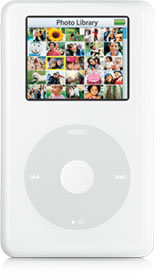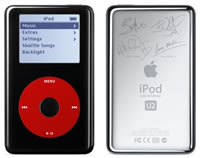Gartner and many in the micropayment world, want companies to engage Zen-like, in a shift of consciousness regarding how their products and services are sold.
For those who don’t keep an eye on such things, a micro purchase is something you buy online for less than $5 by subscription, on-the-spot, invoiced or prepaid. “Apple’s iTunes music store was originally conceived as a driver for iPod sales, but it has become a shining example of how small electronic purchases can actually become a major revenue-driver for an entire company,” said Jackie Fenn, vice president and fellow at Gartner.
Gartner puts the acceleration down to three intersecting trends – the rise of networks making it easier for PC-based buyers and sellers to locate each other, the low cost of transactions handled electronically, and lastly, the increased usage and sophistication of automatic location identification for targeted content and services.
“Online marketplaces that gain critical mass, such as eBay and Craigslist, already provide an infrastructure to link buyers and sellers cost effectively” said Ms. Fenn at the Symposium. “In the same way that eBay makes it economical for a person in Boston to locate and buy a $10 teapot from another state or country, the emerging mobile delivery and payment infrastructure will provide a framework for buyers and sellers to connect for new types of micro services.”
It behoves organisations then to identify if they can leverage mobile and micro payment processes to economically deliver or consume services delivered in much smaller units. And the infrastructure for doing this – micro payment systems, mobile connectivity, m-commerce on wireless networks, authentication, and more-granular products and services are becoming more and more firmly entrenched in the world of electronic business.
Zillions of people making tiny purchases would seem to be more significant from a global economics perspective, than millions of people making very large purchases. Micro commerce may be augmenting the revolution of the small spending masses, quietly sitting in front of their PCs in living rooms all over the world.
 Apple’s much anticipated and predicted new iPod – iPod Photo, launched late yesterday, has moved into the multimedia realm, allowing users to view and share photos as well as the normal music play back. The new iPod Photo can hold up to 25,000 pictures and can be connected to a television to play video slide shows. The 40-gigabyte version is priced at $499 (~£272) and the 60-gigabyte model is priced at $599 (~£326).
Apple’s much anticipated and predicted new iPod – iPod Photo, launched late yesterday, has moved into the multimedia realm, allowing users to view and share photos as well as the normal music play back. The new iPod Photo can hold up to 25,000 pictures and can be connected to a television to play video slide shows. The 40-gigabyte version is priced at $499 (~£272) and the 60-gigabyte model is priced at $599 (~£326).  The U2 iPod is expected to be available mid-November for a suggested retail price of £249 (~$456) through the Apple Store, Apple’s retail stores and Apple Authorised Resellers. IPod TV adverts showing U2 were shown on UK television this evening.
The U2 iPod is expected to be available mid-November for a suggested retail price of £249 (~$456) through the Apple Store, Apple’s retail stores and Apple Authorised Resellers. IPod TV adverts showing U2 were shown on UK television this evening.